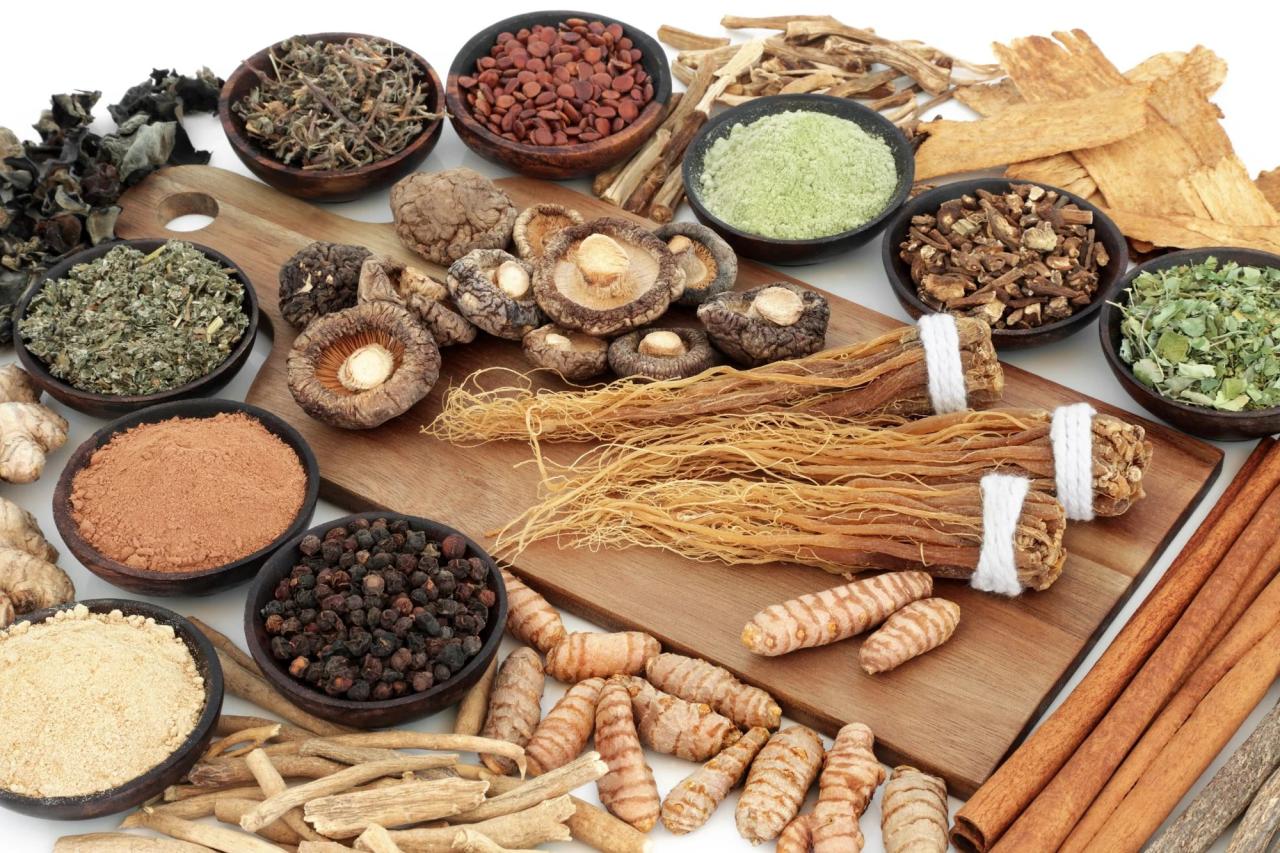Herbal supplements for immunity are all the rage right now, offering a natural way to enhance your body’s defenses. Dive into this trendy topic with a cool, informative twist that will keep you hooked from the get-go.
Let’s explore the world of herbal supplements and how they can help you stay healthy and strong.
Benefits of Herbal Supplements for Immunity
Herbal supplements play a crucial role in boosting the immune system naturally. These supplements are derived from plants and herbs known for their immune-boosting properties, providing a holistic approach to wellness.
Examples of Immune-Boosting Herbs
- Echinacea: Known for its ability to enhance the immune response and reduce the duration of cold symptoms.
- Ginseng: Helps improve the body’s resistance to stress and boosts the immune system.
- Ginger: Contains antioxidants that can help strengthen immunity and reduce inflammation.
- Garlic: Known for its antimicrobial properties and ability to support immune function.
How Herbal Supplements Differ from Traditional Medicine
Herbal supplements differ from traditional medicine in enhancing immunity by focusing on natural ingredients that work synergistically with the body’s immune system. Traditional medicine often relies on synthetic compounds and chemicals to treat symptoms, while herbal supplements aim to address the root cause of immune imbalances and support overall wellness.
Popular Herbal Supplements for Immunity

When it comes to boosting immunity, herbal supplements can play a crucial role in supporting our body’s defense system. Let’s explore some common herbal supplements known for their immune-boosting properties.
Echinacea
Echinacea is a popular herb that has been used for centuries to enhance the immune system. It is believed to stimulate the production of white blood cells, which are essential for fighting off infections. Additionally, echinacea is rich in antioxidants that help reduce inflammation and support overall immune health.
Ginseng
Ginseng is another commonly used herb known for its immune-boosting properties. It contains compounds called ginsenosides that have been shown to enhance the activity of immune cells and improve the body’s response to pathogens. Ginseng also has anti-inflammatory effects, which can further support immune function.
Garlic
Garlic is not only a flavorful addition to dishes but also a powerful immune booster. It contains allicin, a compound with antimicrobial properties that can help fend off infections. Garlic is also rich in antioxidants that protect cells from damage and strengthen the immune system.
Turmeric
Turmeric is well-known for its anti-inflammatory and antioxidant properties, making it a valuable herb for immune support. Curcumin, the active compound in turmeric, can help regulate the immune response and reduce inflammation. Including turmeric in your diet or as a supplement can help enhance overall immunity.
Ashwagandha
Ashwagandha is an adaptogenic herb that helps the body cope with stress, which can have a significant impact on immune function. By reducing stress levels, ashwagandha supports the immune system and promotes overall well-being. This herb also has anti-inflammatory properties that can further enhance immunity.
Best Practices for Using Herbal Supplements
Incorporating herbal supplements into your daily routine can help boost your immunity and overall health. It is important to follow recommended dosages and frequencies to ensure maximum benefits while also being aware of any potential side effects.
Tip #1: Consistency is Key, Herbal supplements for immunity
Maintaining a consistent schedule for taking your herbal supplements can help maximize their effectiveness. Try to take them at the same time each day to establish a routine.
Tip #2: Follow Dosage Instructions
Always follow the recommended dosage instructions provided on the supplement packaging or by your healthcare provider. Taking more than the recommended amount can lead to adverse effects.
Tip #3: Be Aware of Potential Side Effects
While herbal supplements are generally considered safe, it is important to be aware of any potential side effects. If you experience any unusual symptoms after taking a supplement, stop using it and consult a healthcare professional.
Tip #4: Monitor Your Health
Pay attention to how your body responds to herbal supplements. If you notice any negative changes in your health or well-being, discontinue use and seek medical advice.
Research and Studies on Herbal Supplements for Immunity
When it comes to herbal supplements for immunity, scientific research plays a crucial role in understanding their effectiveness. Various studies have been conducted to explore the benefits of using herbs to boost the immune system. Let’s delve into some of the key findings and limitations in this area.
Overview of Scientific Research
- Research has shown that certain herbs like echinacea, elderberry, and astragalus have immune-boosting properties.
- Clinical trials have demonstrated that these herbs can help reduce the duration and severity of colds and flu.
- Studies have also highlighted the anti-inflammatory and antioxidant effects of herbs like turmeric and garlic on immune function.
Specific Herb Studies
- A study published in the Journal of Clinical Pharmacy and Therapeutics found that echinacea extract can stimulate the immune system and reduce the risk of respiratory infections.
- Research on elderberry has shown that it can help enhance immune response and reduce the symptoms of viral infections.
- Clinical trials on astragalus have demonstrated its ability to improve immune function and protect against respiratory illnesses.
Limitations in Research
- One of the main limitations in herbal supplement research is the lack of standardized dosages and formulations, making it challenging to compare results across studies.
- Many studies on herbal supplements are small-scale and may not provide conclusive evidence of their effectiveness.
- There is also a need for more long-term studies to assess the safety and efficacy of herbal supplements for immune health.